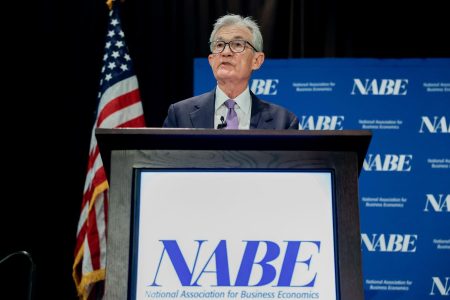The biggest wave of wealth in history is set to pass from baby boomers over the next 20 years, and it’s going to have a huge impact on those who stand to inherit it. It’s called The Great Wealth Transfer — when an estimated $84 trillion is poised to move from older Americans to Gen Xers and millennials. If it’s managed smartly, younger Americans will be able to grow their wealth and ensure their financial security for life.
“Preparing for the Great Wealth Transfer requires careful planning and strategic decision-making for individuals on both sides of the equation — inheritors and those leaving the assets behind,” says Nicholas Yeomans, CFP, president of Yeomans Consulting Group in the Atlanta area.
Both older and younger generations need to ensure this wealth goes where it’s intended and that it does so tax-efficiently. So those looking to get a piece of the Great Wealth Transfer should consider how a top financial advisor can help them navigate the many issues that will occur — including how to turn that wealth into lifetime income, how to reduce taxes on distributions and how to simplify the legal issues around inheritance.
How big is the Great Wealth Transfer?
The Great Wealth Transfer is beginning, with the baby boomers — who own about half the country’s wealth — passing on $84 trillion to heirs through 2045, according to Cerulli Associates. Experts project that younger generations such as Gen X and millennials will inherit $72 trillion of that total, while charities are set to receive the rest. It’s been called the largest transfer of wealth in history — and it’s poised to make millionaires of many people.
Of course, the Great Wealth Transfer will take decades to play out. While the oldest boomers (born 1946–1964) are 79 this year, the youngest are turning 61, not even able to claim Social Security yet. Many Americans have time to prepare their finances so that they and their heirs thrive in the future. But it’s not too early for Gen Xers (born 1965–1980) and millennials (1981–1996) to begin planning for this massive financial shift, too.
The majority of this wealth will be transferred among the wealthiest 10 percent of Americans, according to the New York Times. The top 1 percent wealthiest control as much as the bottom 90 percent of the country as a whole, while the bottom 50 percent direct about 8 percent of the wealth.
Regardless of which tier you sit in, you want that money to go where you intend, while minimizing the effect of taxes on the distribution. That’s exactly how a financial advisor can help older generations.
It’s vital that Americans think about how to manage their estates so that their wishes are met and so that they can minimize costs for their heirs and set them up for success.
Of course, a good advisor can be valuable at this moment for those inheriting wealth, too. Wealth is not income, so even if younger generations inherit wealth, they may need to turn it into income that can sustain them over time, perhaps through dividend stocks or annuities.
Others may inherit real estate that can be used to generate income or else house them and cover what’s likely the single largest expense for most people. So a good advisor can help turn inherited wealth into an income stream for life, providing sustainable financial security.
How Americans can prepare for the Great Wealth Transfer
One of the difficulties in planning for the Great Wealth Transfer is knowing how to deal with the legal issues of passing on wealth — that is, creating an estate plan. Good advisors have seen it all before and know the best ways to navigate this complex process so that you can avoid not only the legal snags but the human issues surrounding it.
Regardless of how much wealth you’re working with, experts say you need an estate plan. The estate plan must have a will and may have a trust, if you’re working with more assets. But even one of the simplest ways to make sure that your assets go where you want is to name a beneficiary on your financial accounts, sidestepping the hassles of probate court.
If you’re using a trust, it’s important that your assets are registered in the trust properly if you want them to enjoy the trust’s protection. Whereas accounts that have named beneficiaries supersede the trust’s instructions, you’ll need to make a complete inventory of all other accounts and ensure that they’re properly registered as part of the trust structure.
Beyond that, it’s important to communicate the plan to potential heirs so that everyone is informed, a point that advisors routinely emphasize.
“Proactively communicate the plans you have in place to your beneficiaries, especially those with kids,” says Eric Bond, president, Octave Wealth Management in Long Beach. “Remember, these conversations are key, because once you pass, your plans are irrevocable. So, this proactive communication allows you the ability to uncover a small problem today, preventing your children from facing a big problem down the road.”
Again, this process can be driven not only by those who are giving away their wealth but also by younger generations. It’s important that potential heirs open discussions so that they know where accounts and important documents are located.
“While these conversations may be difficult to broach with parents, you can keep things simple: your parents don’t have to share account balances with you but simply provide the location, registration and beneficiaries so it can be easily accessed upon their death,” says Bond.
Making estate plans can be incredibly complex and require extensive knowledge about the best way to keep and grow your assets, so an expert advisor can help you sort things out smartly.
“Individuals and families should consider engaging financial professionals to develop comprehensive financial, tax and estate plans that align with their long-term goals and values,” says Yeomans.
Building generational wealth with the Great Wealth Transfer
While the Great Wealth Transfer can be daunting, it’s a moment to get smart about finances, plan for your money to endure and even build generational wealth.
“The biggest slip-up is when the person inheriting the money fails to proactively plan,” says Bond. “Unfortunately, this often results in not investing the inheritance in the best possible way and instead spending the money unnecessarily.”
Bond points to paying “expensive and unexpected tax bills” as one place of fruitless spending. With smart planning, more of that money can stay in the pockets of heirs.
For older Americans, one way to help heirs sidestep taxes is to convert a traditional IRA to a Roth IRA. While that may involve paying taxes today, it allows heirs to avoid taxes later on, potentially after enjoying significant gains. Financial advisors can help you understand whether the move makes sense for your situation and walk through some of the complexities of an inherited IRA.
But even if you’re not going to undertake complicated maneuvers, it’s still important to understand key inheritance issues, such as the step-up in cost basis on assets. The step-up in basis may save even regular Americans hundreds of thousands of dollars, though many people accidentally make decisions that derail this serious tax savings.
“When you inherit an asset, the value of that thing might be more than what it was when the person who left it to you originally bought it for,” says Bond. “The step-up basis is basically resetting the value of that thing to what it’s worth when you inherit it.”
Heirs may ultimately save a ton by waiting to sell assets after they’ve been passed down, when they have a higher cost basis and will therefore owe lower or no capital gains taxes.
Finally, the Great Wealth Transfer also offers a moment to consider which assets build more wealth over time. Long-term returns have historically been strongest in a diversified portfolio of stocks. The Standard & Poor’s 500 Index — a collection of hundreds of America’s best companies — has returned about 10 percent on average annually over long stretches. It’s a proven wealth-building strategy and one endorsed by legendary investor Warren Buffett. A good advisor can help you set up smart investments that can build wealth for decades.
Bottom line
A tremendous amount of wealth will be moved during the Great Wealth Transfer, so it’s wise to begin planning as soon as possible. Smart estate planning can help older generations pass their money efficiently to whom they want while also helping younger generations build wealth for decades to come, making even a smaller inheritance life-changing over time.
Why we ask for feedback
Your feedback helps us improve our content and services. It takes less than a minute to
complete.
Your responses are anonymous and will only be used for improving our website.
Help us improve our content
Read the full article here












